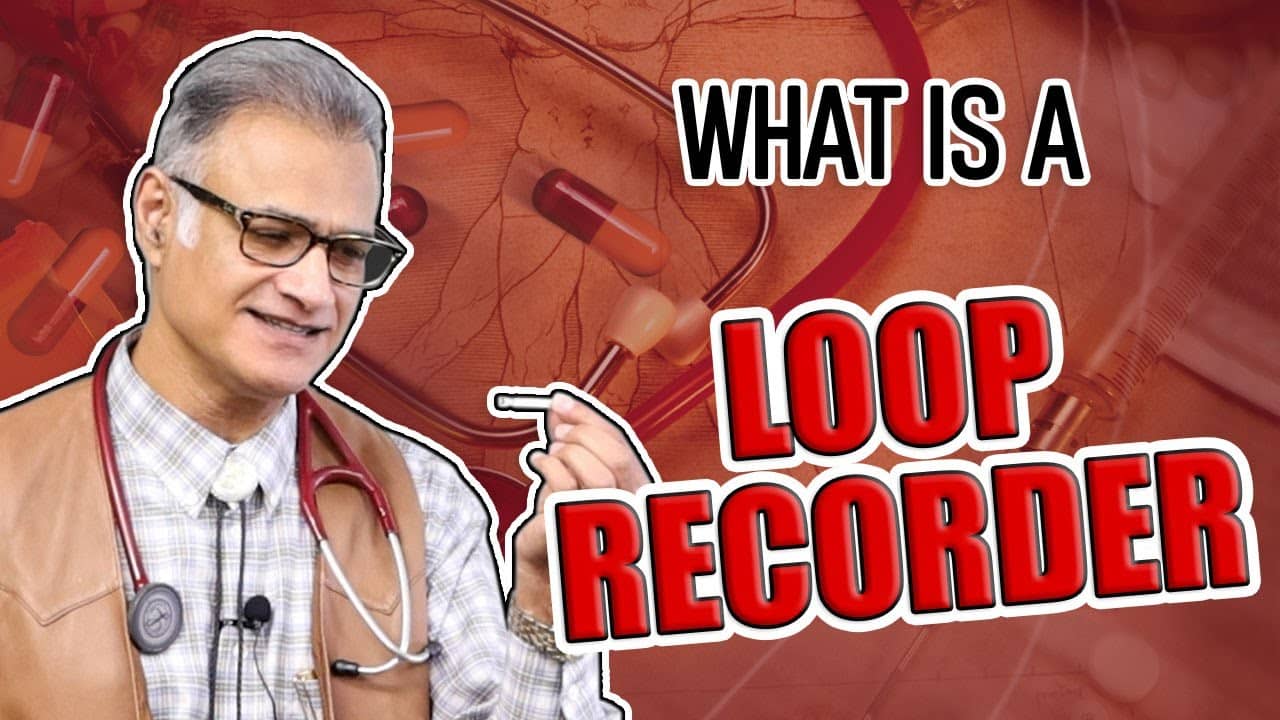Hello there! Are you feeling dizzy or lightheaded lately? Have you ever been asked to have a loop recorder inserted into your chest? If you’re curious about this little gadget, you’re in the right place.
Dr. Jamnadas from Cardiovascular Interventions in Orlando is here to talk about loop recorders, and let me tell you, they’re fascinating!
But wait, what exactly is a loop recorder? It’s a small device implanted under your skin, on top of your heart, to monitor your heart’s rhythm. It records abnormal rhythms that make you feel dizzy, lightheaded, or even pass out. If you’re experiencing any of these symptoms, a loop recorder can help you get to the root of the problem.
You might be wondering, but how does it work? The recorder has a small memory capacity and only records abnormal rhythms such as atrial fibrillation, supraventricular tachycardia, and pauses in a heartbeat. It stores this information in its chip, which can be downloaded to a receiver you’ll be given. It’s that easy and convenient!
Dr. Jamnadas shared some personal stories of how loop recorders have been instrumental in diagnosing and treating their patients. He had a case of a lady who kept fainting without warning. A loop recorder was inserted, showing that she had long pauses in her heartbeat. Promptly, he implanted a pacemaker that solved the problem. Another personal experience is when a patient had a stroke, and they inserted the loop recorder to find that it was caused by atrial fibrillation. This case helped change the patient’s management, and they were put on blood thinners to prevent it from happening again.
Moreover, loop recorders have other valuable applications, like monitoring patients after cardiac ablation or determining if atrial fibrillation is still present or has stopped, which can determine a patient’s discontinuation from anticoagulation.
But how does it feel to get one implanted? Not to worry, it’s done under local anesthesia, with minimal pain and no stitches needed. You’ll experience a tiny lidocaine bleb on your chest wall, and the recorder is inserted under your skin. Your heart’s rhythm will be monitored for approximately two and a half to three years, and after that, it can stay inside if it’s not bothering you. However, if it needs to be removed, it can be done in the office under some anesthesia.
In conclusion, loop recorders are helpful for accurate diagnosis and safer medicine. They’re conveniently located under your skin, making monitoring more straightforward and hassle-free. A bonus is Dr. Jamnadas’s personal touch with his patients, even pulling out the loop recorder himself! If you’re experiencing any heart rhythm abnormality, ask your doctor about a loop recorder and see how it can help you get back on track.
I hope you found this blog helpful and informative. Let me know your thoughts in the comments below, and don’t forget to subscribe to our channel for more exciting topics in cardiovascular interventions!
*****
*****
Summary of Transcript:
Dr. Jamnadas describes a loop recorder, a small device inserted under the skin to monitor heart rhythms. It records abnormal rhythms such as slow heartbeats, rapid atrial fibrillation, or supraventricular tachycardia and downloads the data to be viewed by doctors. It monitors patients who complain of lightheadedness or dizziness, have been diagnosed with atrial fibrillation, or have undergone ablation therapy. Dr. Jamnadas shares some patient stories where the loop recorder was used to diagnose long pauses in heartbeats, identify atrial fibrillation following a stroke, and confirm the absence of atrial fibrillation to allow for the discontinuation of blood thinners. She also discusses the battery life of the device and the simple process of removing it.
*****
Summary of Description:
In this video, Dr. Pradip Jamnadas explains how a loop recorder can remotely send information about irregular heartbeats to their office. This device monitors arrhythmias and can help diagnose and treat various heart conditions. Dr. Jamnadas also links his other videos and lectures on heart health. However, he emphasizes that viewers should consult their physician before starting any medical program or treatment.
*****
Source Description
In this video, I explain how a simple loop recorder can remotely send information about irregular heartbeats (Arrhythmias) to our office.
Subscribe to the Channel!
https://www.youtube.com/channel/UCOtQHehGWtblMp1gZC8Kq3Q?sub_confirmation=1
Sign up for my Heart Health emails
https://orlandocvi.com/heart-health-updates-yt/
My other Videos:
Loop Recorder Implant Procedure – https://youtu.be/YCWYTZImgVY
Why your Cardiac Examination is Incomplete – https://youtu.be/Rzb5r8FXpRU
What is a Coronary Calcium Score? – https://youtu.be/NYkW2vxyioc
What is a C.T. Angiogram (CTA) of the Heart? – https://youtu.be/uHpN1FQ-Hvo
What is Cardioversion? – https://youtu.be/yb-srtyEOuY
What is a Leadless Pacemaker? – https://youtu.be/2CYZbeYSvVE
What is Right Heart Catheterization? – https://youtu.be/2hy05-dM-lM
What is a Heart Attack? – https://youtu.be/lPzT62_b4Ko
Heart Attack Treatment – https://youtu.be/N0vFV3wOGPU
What is a Kraft Test? – https://youtu.be/SxS2AayOHmo
What is an Echocardiogram? – https://youtu.be/DZ3G8P0L_sM
Monitoring Heart Failure with CardioMEMS – https://youtu.be/A35IsJxs6mw
Introduction to Cardiac Catheterizations – https://youtu.be/k4UyUBGnojU
External Counterpulsation (ECP) for Chest Pain and Coronary Calcium – https://youtu.be/4wd-3WyvlNQ
My Lectures:
“The Fat Lies” – https://youtu.be/Yo-IL-LH5FQ
“The Bittersweet Truth” – https://youtu.be/6zZBiTfIp4Q
Social Links:
https://www.facebook.com/orlandocvi
https://www.instagram.com/pradipjamnadasmd/
https://www.facebook.com/pradipjamnadasmd/
About Dr. Pradip Jamnadas, MD, MBBS, FACC, FSCAI, FCCP, FACP
The founder and Chief Medical Officer of Cardiovascular Interventions, P.A. in Orlando, Florida, where, since 1990, he has been repeatedly recognized in local publications as a Top Doctor performing thousands of interventional procedures in hospital and outpatient settings. As a consultant cardiologist with a sizeable diversified inpatient and outpatient practice, he is noted for his passion for teaching and illuminating prevention for cardiovascular disease. He is also a clinical assistant professor of medicine at Florida State University and the University of Central Florida.
Disclaimer: The information provided is for general knowledge and is not a substitute for individual medical advice. All viewers should consult their physician before starting any medical program or treatment. Any action you take upon the information you find within this content is strictly at your own risk. Neither Dr. Pradip Jamnadas nor Cardiovascular Interventions will be liable for any damages or losses in connection with the content on this YouTube Channel.


